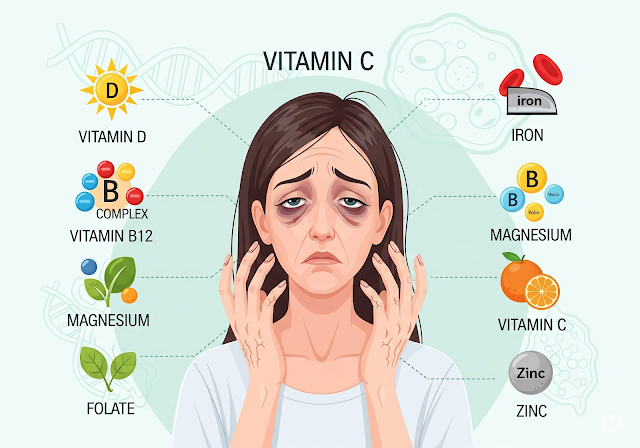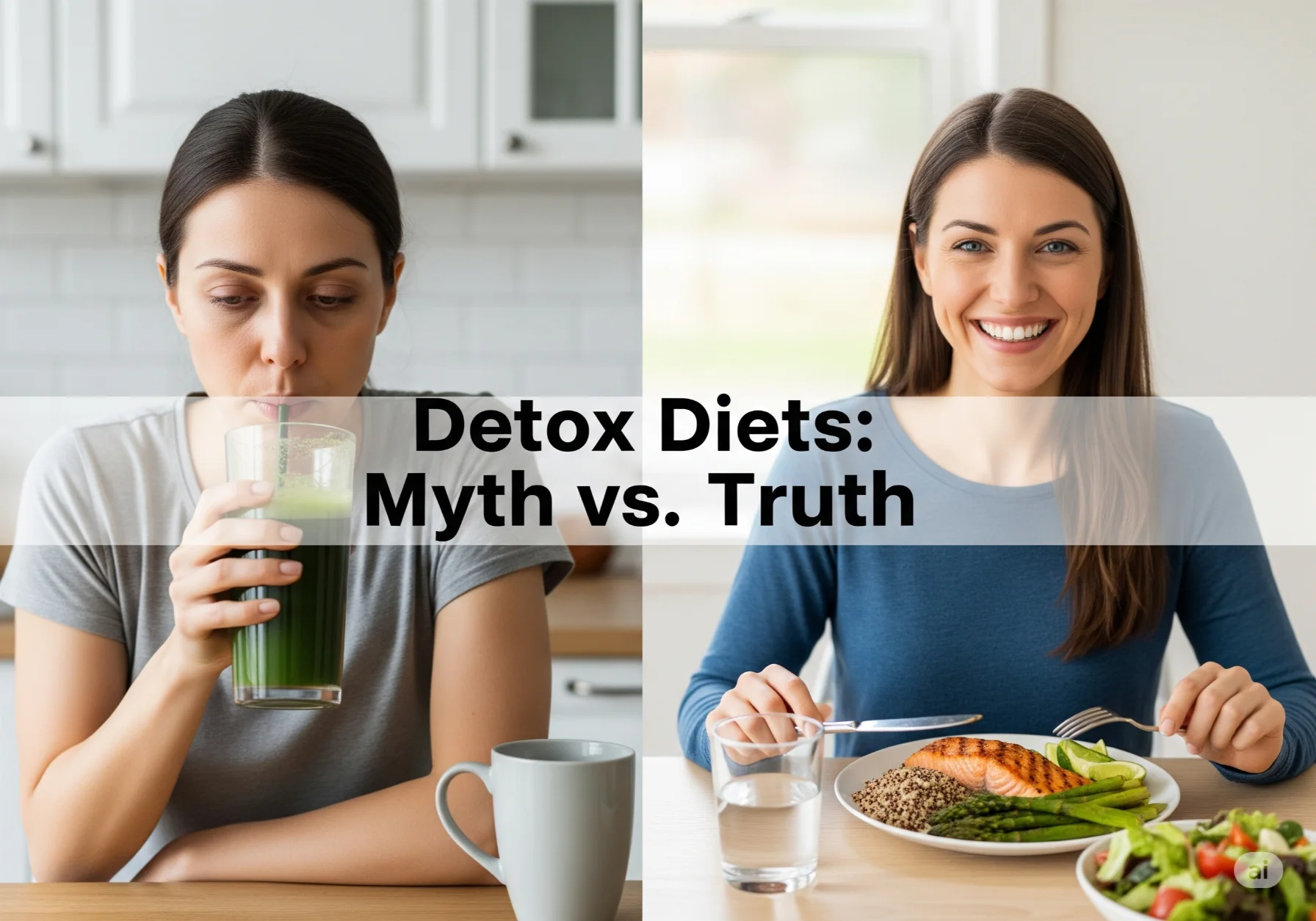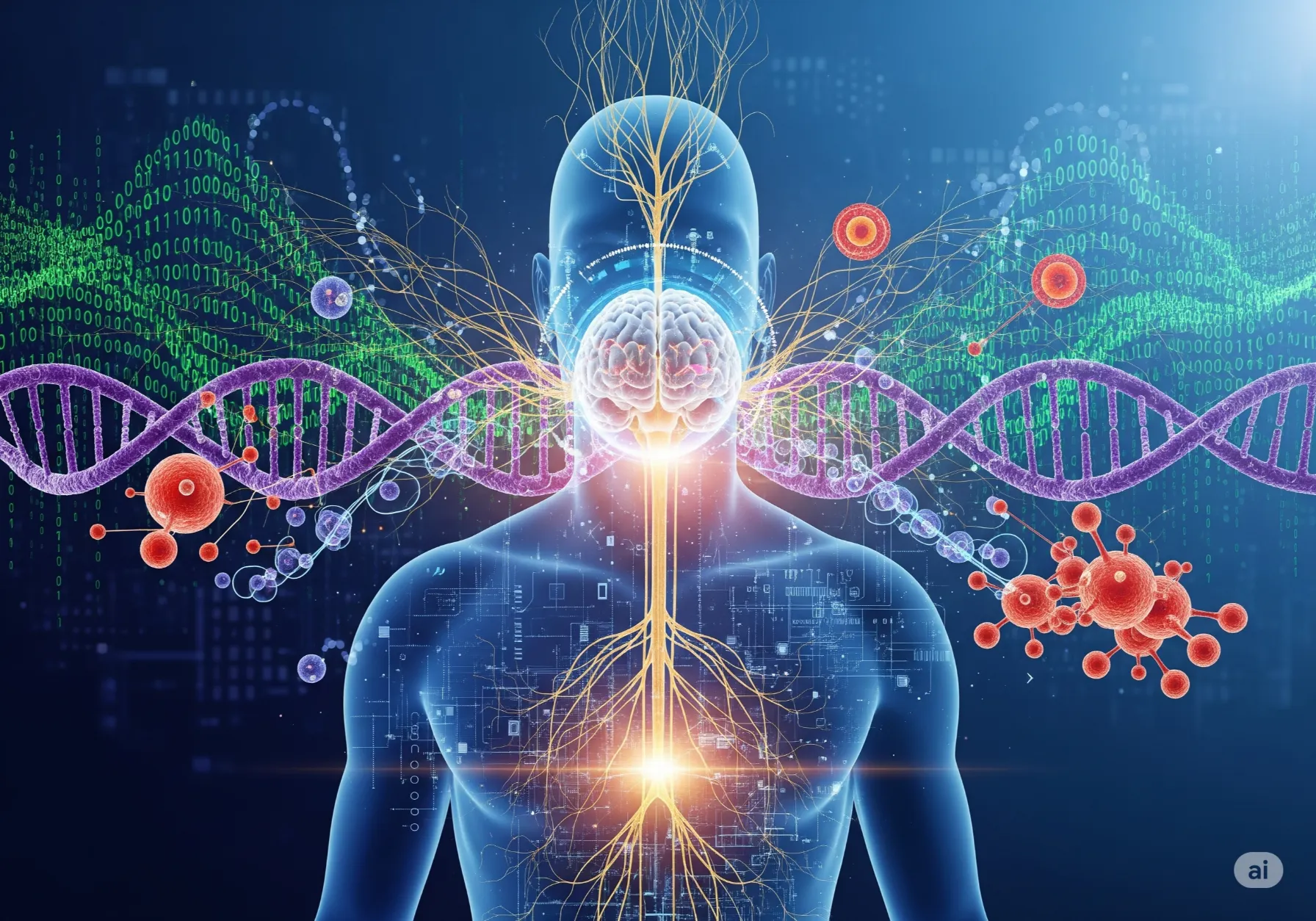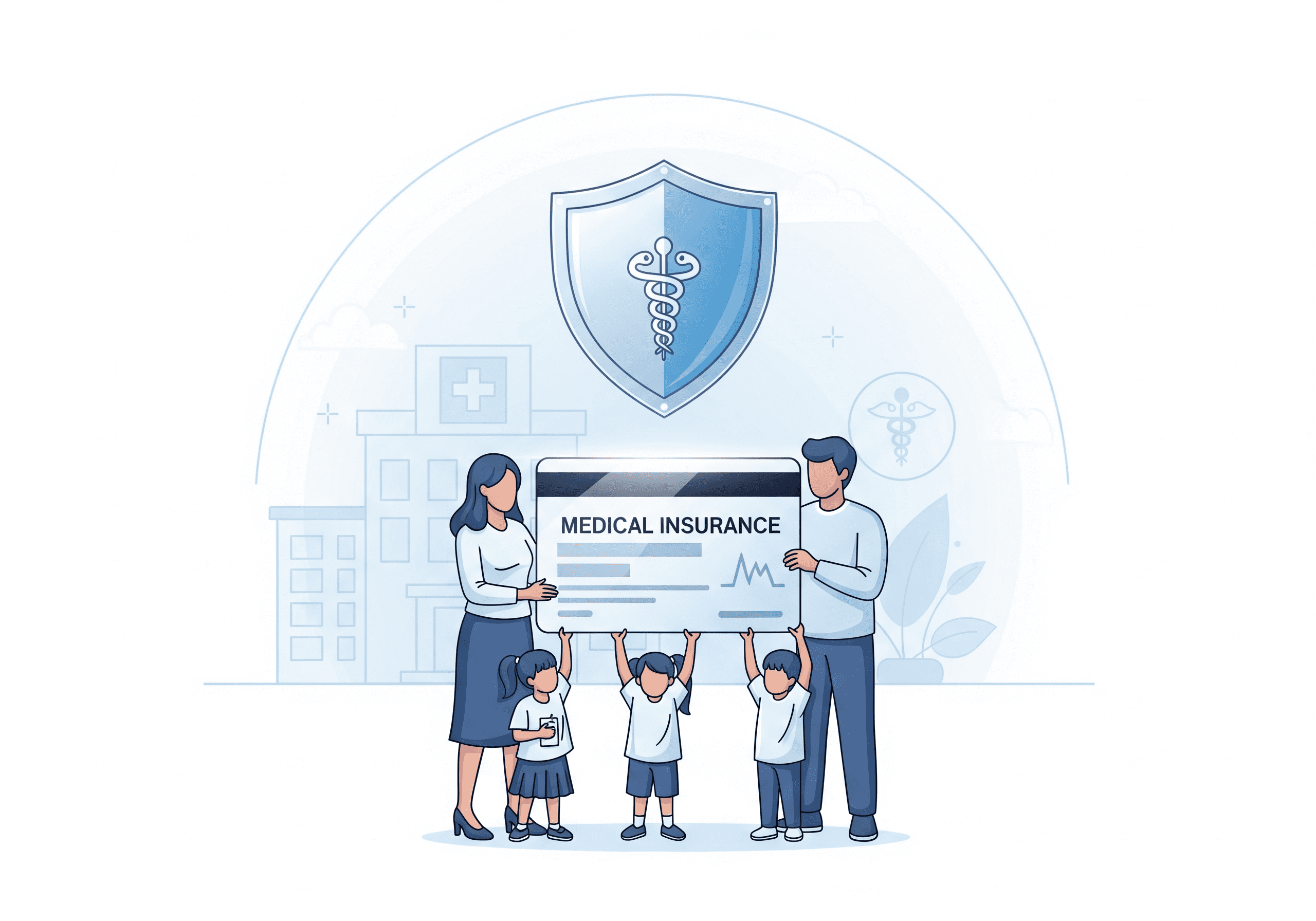Introduction: Why Vitamin Deficiencies Matter
In today’s fast-paced lifestyle, it’s easy to ignore small health issues that seem insignificant. But what if your constant fatigue, brittle nails, or frequent mood swings were more than just a side effect of stress? These could be silent signs that your body is lacking essential vitamins. Vitamin deficiencies are more common than most people realize, and they can lead to serious health issues if not identified and corrected early.
This article will help you decode these silent signals, understand which nutrients might be missing from your diet, and guide you on how to restore balance naturally.

1. Constant Fatigue and Low Energy: Could It Be More Than Just Tiredness?
Symptom Insight:
If you’re sleeping enough but still waking up exhausted, it might be more than just burnout. Persistent fatigue is a key sign of several vitamin deficiencies.
Possible Deficiencies:
- Vitamin B12: Essential for energy production. A lack can cause weakness, brain fog, and even nerve damage.
- Iron: Needed for hemoglobin production. Low iron levels = less oxygen to your muscles and brain.
- Vitamin D: Without enough sunlight or food sources, low levels can leave you feeling sluggish and depressed.
What To Do:
- Eat more leafy greens, fish, red meat (iron), and dairy.
- Consider B12 and iron supplements after a blood test.
- Get 15–20 minutes of sun daily or take a D3 supplement.
2. Brittle Nails and Hair: Your Body’s SOS Signal
Symptom Insight:
Cracked, splitting nails and thinning hair may not just be from exposure to water or poor haircare products.
Possible Deficiencies:
- Biotin (Vitamin B7): A crucial vitamin for healthy nails, skin, and hair.
- Zinc: Helps in tissue growth and repair.
- Protein: Although not a vitamin, low intake affects keratin production.
What To Do:
- Include eggs, nuts, seeds, and avocados in your diet.
- Look for a multivitamin with biotin and zinc.
- Don’t rely solely on external beauty products.
3. Frequent Mood Swings or Depression: Nutrition Affects Your Brain Too
Symptom Insight:
Feeling anxious, irritable, or emotionally low more often than usual could have a nutritional root cause.
Possible Deficiencies:
- Vitamin D: Linked closely with serotonin production.
- Omega-3 Fatty Acids: These improve brain health and emotional regulation.
- Vitamin B6 & B12: Involved in neurotransmitter balance and mental clarity.
What To Do:
- Eat more fatty fish (like salmon), walnuts, and fortified cereals.
- Spend time in natural sunlight.
- Try fish oil or omega-3 supplements if you’re vegetarian or vegan.
4. Muscle Cramps and Numbness: Electrolyte and Vitamin Imbalance
Symptom Insight:
Cramps that strike at night, tingling in the hands or feet, or restless legs might be your body’s way of crying out for certain micronutrients.
Possible Deficiencies:
- Magnesium: Helps relax muscles and maintain nerve function.
- Potassium: Essential for muscle function.
- Vitamin B1 (Thiamine): Supports nerve health.
What To Do:
- Eat bananas, sweet potatoes, and whole grains.
- Use magnesium oil or Epsom salt baths.
- Keep hydrated to aid nutrient absorption.
5. Pale or Yellowing Skin: Look in the Mirror for Clues
Symptom Insight:
If your face looks paler than usual or your eyes and skin have a yellow tinge, this could be a warning sign.
Possible Deficiencies:
- Vitamin B12: A deficiency can cause pale or slightly yellowed skin due to red blood cell issues.
- Iron: Anemia-related paleness is a classic sign of iron deficiency.
- Folate (Vitamin B9): Works with B12 to form red blood cells.
What To Do:
- Include lentils, citrus fruits, and dark greens in meals.
- Monitor your energy levels and get a blood test if symptoms persist.
6. Bleeding Gums or Mouth Ulcers: More Than Just Poor Hygiene
Symptom Insight:
Bleeding gums when brushing, or frequent mouth sores, might not always be about dental hygiene.
Possible Deficiencies:
- Vitamin C: Helps repair tissues and supports the immune system.
- Vitamin B2 (Riboflavin): Deficiency can cause cracked lips and sore throat.
- Folate: Aids in healing tissue inside the mouth.
What To Do:
- Eat more oranges, strawberries, bell peppers, and spinach.
- Consider a water-soluble multivitamin for rapid absorption.
- Don’t ignore these signs—vitamin C deficiency can lead to scurvy in severe cases.
7. Poor Night Vision or Dry Eyes: Your Eyes Need Vitamins Too
Symptom Insight:
If your night vision is worsening or your eyes feel dry and gritty, your diet might be the culprit.
Possible Deficiencies:
- Vitamin A: Crucial for retinal function and moisture regulation in the eyes.
- Zinc: Helps transport Vitamin A to the retina.
What To Do:
- Eat more carrots, sweet potatoes, liver, and dairy.
- Use lubricating eye drops and increase hydration.
- Avoid staring at screens too long without breaks.
8. Slow Wound Healing: A Hidden Health Warning
Symptom Insight:
Are your cuts taking too long to heal? This could mean your immune system and tissue regeneration are compromised.
Possible Deficiencies:
- Vitamin C: Needed for collagen formation and immune response.
- Zinc: Aids in cell regeneration.
- Vitamin A: Helps with skin and mucous membrane repair.
What To Do:
- Add bell peppers, pumpkin seeds, citrus fruits, and squash to your meals.
- Keep wounds clean and track healing progress.
- Consult a doctor if cuts stay open too long or get infected frequently.
9. Bone Pain and Backaches: Not Just Aging
Symptom Insight:
If you’re feeling achy or experiencing frequent back pain, especially in winter, vitamin D might be to blame.
Possible Deficiencies:
- Vitamin D: Helps calcium absorption and supports bone density.
- Calcium: Vital for bone strength.
- Vitamin K2: Directs calcium to bones instead of arteries.
What To Do:
- Get sunlight exposure and include cheese, eggs, and fortified milk in your diet.
- Talk to your doctor about vitamin D3 and K2 supplementation.
10. Brain Fog and Memory Lapses: More Than Just Distraction
Symptom Insight:
Struggling to focus, recall details, or stay mentally sharp could be a silent signal from your brain.
Possible Deficiencies:
- Vitamin B12: A known cause of memory issues and foggy thinking.
- Omega-3 Fatty Acids: Supports brain cell integrity.
- Choline: Important for neurotransmitter function.
What To Do:
- Include fish, eggs, soybeans, and nuts in your diet.
- Stay mentally active through reading, puzzles, or new skills.
- Drink enough water to prevent dehydration-induced fog.
11. Craving Ice or Non-Food Items: A Condition Called Pica
Symptom Insight:
Craving ice, clay, chalk, or even dirt? This isn’t just odd—it can indicate a serious deficiency.
Possible Deficiencies:
- Iron: Strongly linked with this strange craving.
- Zinc: Also associated with non-food cravings.
What To Do:
- Get a complete blood count (CBC) to check iron levels.
- Iron-rich foods: spinach, red meat, beans, and tofu.
- Avoid giving in to these cravings—they can harm your digestive tract.
How to Detect Vitamin Deficiencies Early
- Blood Tests: The most accurate way to detect vitamin levels.
- Dietary Recall: Keep a food journal to identify nutritional gaps.
- Regular Checkups: Especially if you’re vegan, elderly, or pregnant.
Natural Sources vs Supplements
While whole foods are the best source of nutrients, modern life often makes supplements necessary.
When to Choose Supplements:
- Medical deficiency diagnosis
- Dietary restrictions (e.g., veganism)
- Limited sunlight (vitamin D)
- Digestive issues that impair absorption
Always consult a healthcare professional before beginning any supplement regime.
Final Thoughts: Listen to Your Body
Vitamin deficiencies often whisper before they scream. From brittle nails to memory issues, your body sends subtle clues when something’s missing. By learning to recognize these signs early and adjusting your diet and lifestyle accordingly, you can prevent more serious health issues down the road.
Maintaining a well-balanced diet, getting enough sunlight, staying hydrated, and managing stress are simple ways to ensure your body gets the nutrients it needs.









Leave a Reply